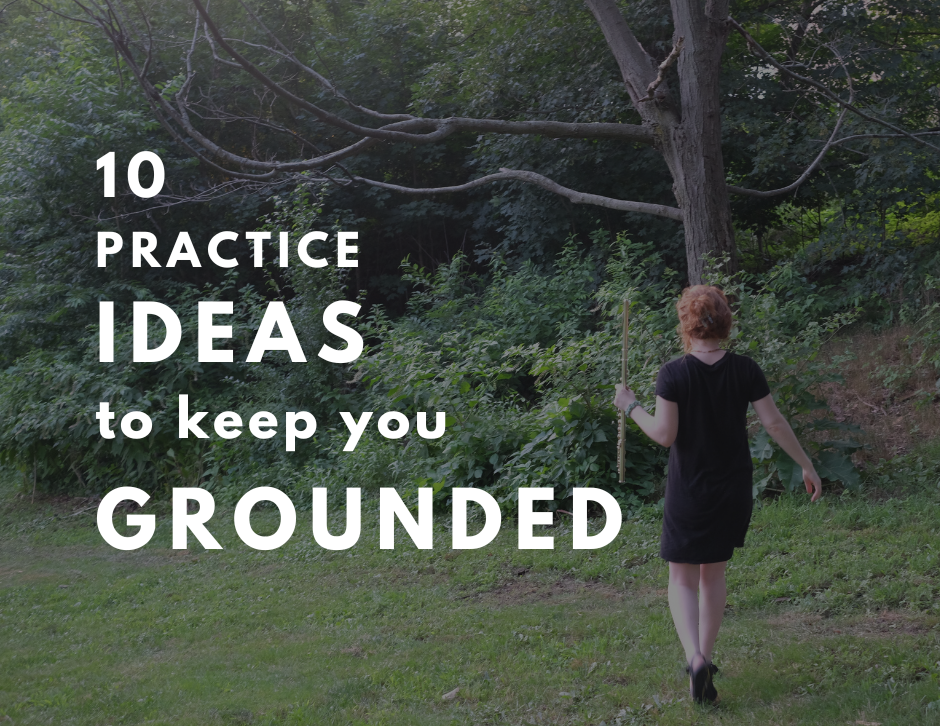Elevating your musicianship through mind and body awareness
- Ali Hoffman
- Apr 29, 2025
- 4 min read

When I teach flute lessons, I ask my students, "how did that feel?" after they finish playing part of a warm up, etude, or solo, often when it didn't go according to plan.
They figure the answer I'm looking for must be something external, so the first words out of their mouth are usually observations or judgments about what happened, “I messed up this measure” or “I breathed too many times” or "that sounded bad".
It's a quick negative reaction to distance themselves from their hard work that didn't pay off that time. It seems they want to say something as far away from "good" as possible to prove that they have higher standards than the result of what just came out of their instrument.
I was a student once, too, and I understand how vulnerable it is to learn in front of someone, how tempting it is to prove your knowledge and hard work.
But when I ask, "how did that feel?" what I'm really asking is, "how did that feel, mentally and physically, for YOU in your mind and body?"
Not, "What went wrong?"
Not, "Critique yourself, fast!"
Not, "Give me a 5 paragraph essay about why you're bad at flute."
I'm not asking about what could be judged externally, I'm asking about what you experienced internally.
How did it feel in your MIND? Did it feel clear, straightforward, easy, confident, flowing? Or frantic, difficult, and blurry?
How did it feel in your BODY? Free, easeful, strong, natural? Or tense, awkward, and uncomfortable?
What do I do with this feeling?
The way something feels internally leads us to our next practice steps:
Feeling >>> Outcome >>> Next Steps
FEELING: The 16th note passage felt frantic and uncontrolled in your mind.
Outcome: It sounded rushed, and there were several mistakes.
Next steps: Break the passage into chunks and practice with intentional repetitions.
FEELING: The high notes felt awkward and tight in your body.
Outcome: The tone was pinched and shrill.
Next steps: Do harmonics/long tones/etc. with a focus on opening up your body and keeping your air strong and free.
FEELING: The etude/solo felt "fine" or "pretty good" in your mind and body.
Outcome: The music was accurate with little to no mistakes, but it didn't have any emotion.
Next steps: Put your heart into it! Add dynamics, vibrato, and spruce up articulation. Listen to professional recordings for more inspiration.
What if I don't know how it felt?
Awareness is something to practice in itself. You will have to build your noticing muscles by tuning into your body while you play. It might feel new and unfamiliar, but that's okay. Awareness will grow as long as you pay attention to it.
The good news is, we can work backwards, too.
What happened? >>> Why did it happen? >>> What's the root cause? >>> (What can I physically or mentally adjust to reach my desired outcome?)
When we find the root cause, we'll have a feeling to grasp onto and pay attention to when we try again.
For example:
Why were there so many wrong notes or hesitations in that passage? It's not because you're a bad flutist or an irresponsible student. It's because your brain screamed "AAAAAHHH" while you were playing because you weren't able to grasp what you were reading at this speed. And THAT happened because you picked a tempo that wasn't suitable for your current level (or because you didn't pick, you just jumped in without a plan). And THAT happened because you're eager to learn and you care about your music and you're a work in progress, just like the rest of us.
On a practical level, your eagerness and/or impatience caused you to rush, so your playing was frantic. How does "frantic" FEEL in your brain? Your body? What would grounded feel like? How can we get there?
The more aware we are about what's happening in our mind and body, the more effective we can be at making music, which in turn leads to more enjoyment. This mind and body awareness is how we can elevate our musicianship.
It's not a perfect science, but most of the time on our instruments, the things that SOUND nice also FEEL nice. And the things that SOUND tense also FEEL tense.
The difference between "unfamiliar" and "uncomfortable"
It takes some practice and discernment to distinguish unfamiliar sensations from uncomfortable sensations; new things are unfamiliar, and that unfamiliarity might feel awkward while you're getting used to it, but there's a difference between awkward newness and uncomfortable tension or pain. Newness is neutral and part of the journey, but tension and pain are never the goal. (Note: if you're experiencing pain when you play, consult your doctor and/or teacher).
We have to be great listeners to improve our musicianship, but we also have to be great feelers. Music is an art of noticing.
Next time you practice your instrument, ask yourself, "how did that FEEL?"
Thanks for reading! If you find my writings useful, consider supporting my work by buying me a coffee, or sending this to a friend! Subscribe to my email list here for more content like this.
Here are some other ways you can work with me:
Join my flute studio or purchase a lesson package for lessons, workshops, free resources, and more [Click here to schedule a consultation]
Buy my books & resources which supports my work and allows me to create new resources for you!




Comments